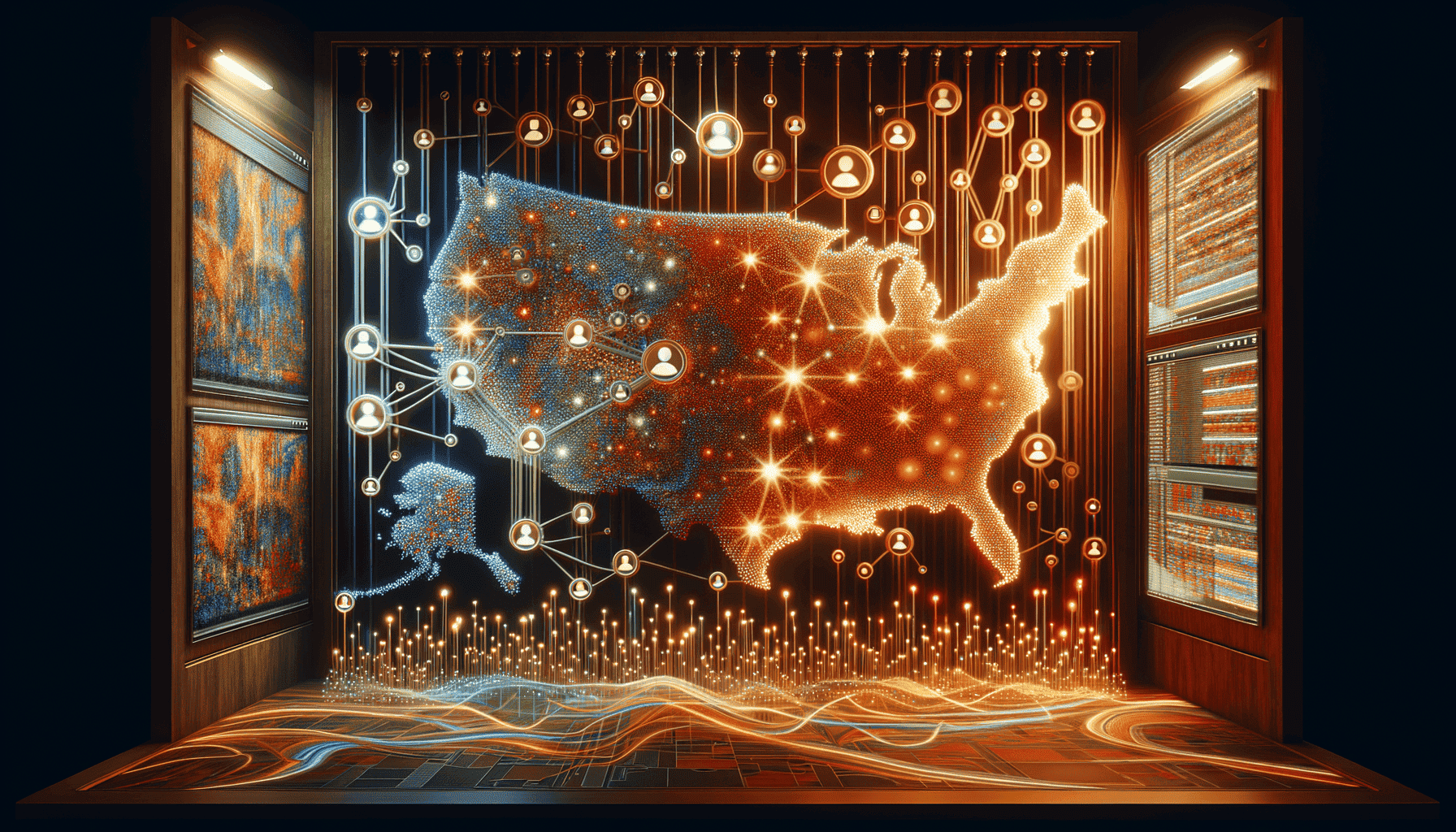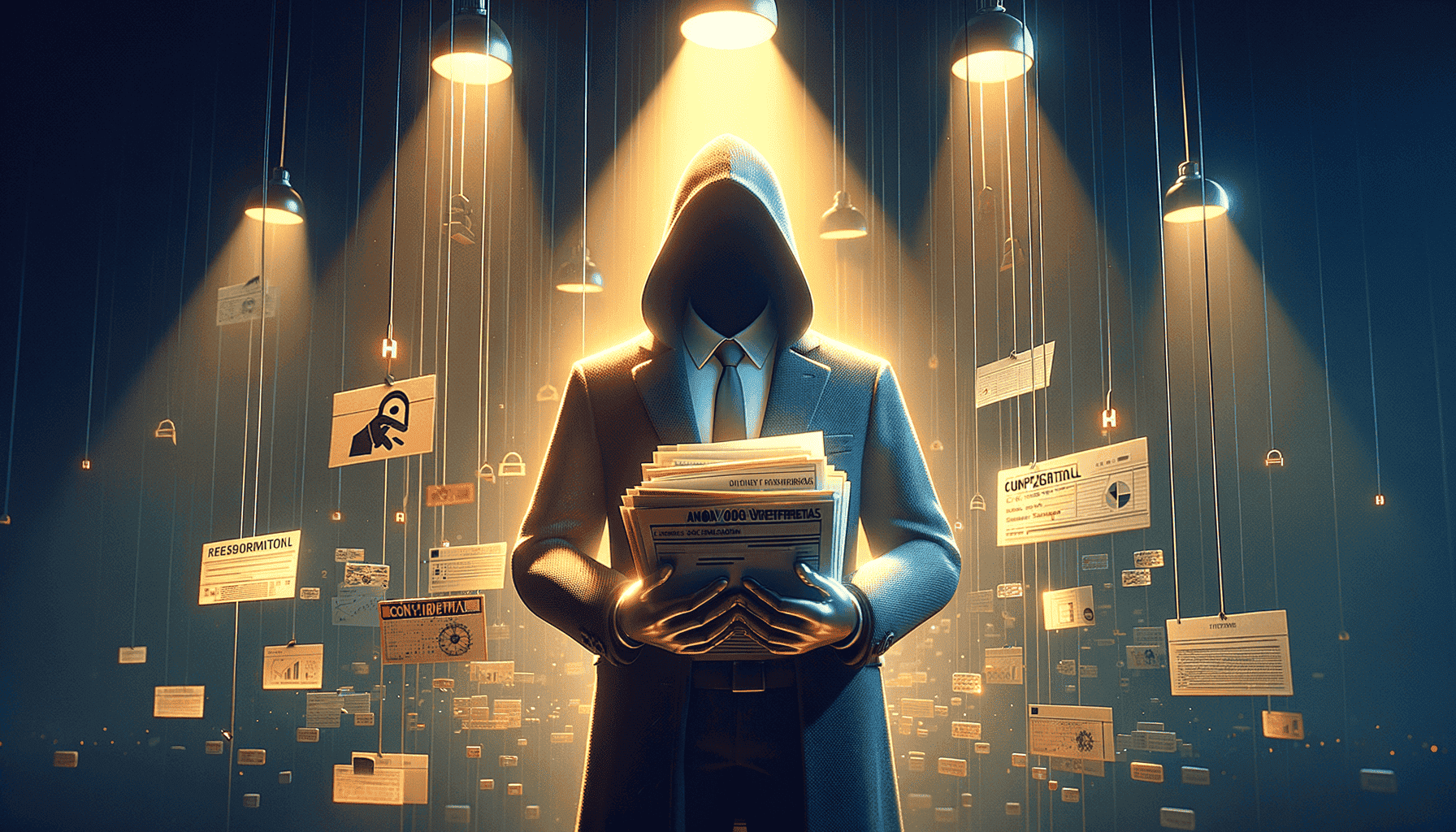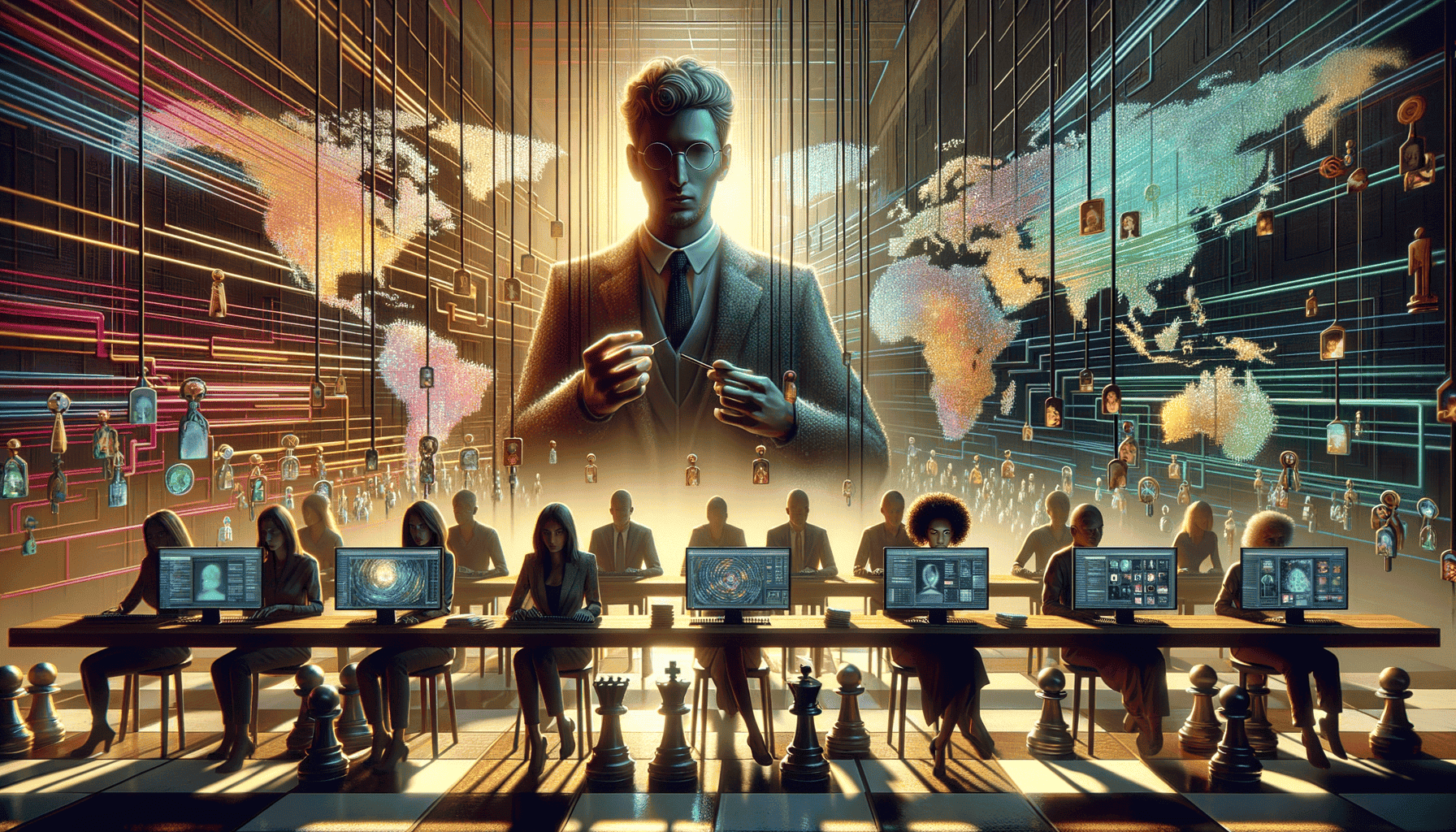The Pink-Haired Whistleblower
Christopher Wylie looked different from most people who worked with big computers. His bright pink hair made him stand out in a crowd. He was young – only 24 years old – but he was very smart with numbers and computers.
Every morning, Christopher would walk into a fancy office building in London. The sign on the door said "Cambridge Analytica." Inside, people were doing something new and exciting with Facebook. But Christopher didn't know yet that this exciting thing would turn into something bad.
A Special Kind of Computer Work
"We can learn so much about people from what they do on Facebook!" Alexander Nix, Christopher's boss, said with a big smile. Alexander wore fancy suits and talked fast about making lots of money.
Christopher typed on his computer, looking at rows and rows of information about Facebook users. It was like having a giant book about what millions of people liked, shared, and clicked on.
“It’s amazing how much people share about themselves online,” Christopher thought to himself. “But should we really be looking at all of this?”
The First Warning Signs
One day, Christopher noticed something strange. The company wasn't just looking at what people posted on Facebook – they were taking information from their friends too! If someone used a fun quiz app on Facebook, the app would grab information from all their friends without asking.
Christopher started feeling worried in his tummy. He knew about computers and data, but this felt wrong. It was like reading someone's private diary without asking.
Making Big Decisions
Late one night, while everyone else had gone home, Christopher sat at his desk thinking hard. He looked at all the information they had collected:
• Names and birthdays
• What people liked and shared
• Their friend lists
• Their private messages
• Where they lived
His hands shook a little as he realized just how much they knew about everyone.
"We're not just studying people anymore," he whispered to himself. "We're spying on them."
A Heavy Secret
Christopher went home that night feeling like he was carrying a heavy backpack full of secrets. He knew something was wrong, but he wasn't sure what to do about it.
He looked in the mirror, his pink hair bright against his worried face. "Someone needs to tell people what's happening," he said to his reflection. "Maybe that someone needs to be me."
The next morning, Christopher walked into the office building again. But this time, he wasn't just a computer worker anymore. He was becoming something else – a person who would tell the truth about what was happening, no matter what it cost him.
Christopher didn't know it yet, but his decision to speak up would soon change how the whole world thought about sharing information online. His pink hair would become famous, and his story would make people everywhere think differently about what they share on Facebook.
The sun was setting over London as Christopher packed up his desk that evening. Tomorrow would be another day at Cambridge Analytica, but things would never be quite the same. The truth was starting to come out, one piece at a time.
The Data Collection Machine
Deep inside Cambridge Analytica’s shiny office, Alexander Nix paced back and forth. His expensive shoes made soft sounds on the carpet. He was explaining his big plan to a room full of people.
The Quiz That Wasn’t Just a Quiz
“We made something special,” Alexander said with a big smile. “It looks like a fun Facebook quiz about your personality. But it’s really a way to learn everything about people!”
The quiz was like a hungry monster that ate information. When someone took the quiz, it didn’t just learn about them – it learned about all their friends too!
Building the Big Data Machine
In a dark room filled with computers, data scientists worked day and night. They were building something they called “the psychographic modeling system.” But really, it was just a way to sort people into different groups.
“With this data, we can understand how people think better than they understand themselves,” Alexander told his team proudly.
The computer screens showed colorful charts and numbers. Each dot on the screen was a real person whose information had been collected:
• What they liked on Facebook
• Where they shopped
• Who their friends were
• What made them happy or sad
• What they believed in
The Secret Formula
Cambridge Analytica had a special recipe for understanding people. They mixed together:
– Facebook likes
– Quiz answers
– Friend connections
– Online behavior
It was like having a magic mirror that could see inside people’s minds. But unlike fairy tales, this magic wasn’t make-believe – it was real, and it was powerful.
The Growing Worry
Some workers started feeling uncomfortable. “Are we doing something wrong?” one programmer whispered to another during lunch break.
“We’re just collecting data,” their manager said. “Everyone does it!”
But they were collecting more than just data. They were collecting secrets, hopes, fears, and dreams – all without asking permission.
Alexander’s Big Dreams
Alexander Nix sat in his big office, looking at maps of different countries. He wasn’t just thinking about Facebook quizzes anymore. He was thinking about how to use all this information to change how people vote in elections.
“With this data,” he said to himself, “we can shape the future.”
Outside the Cambridge Analytica office, people went about their daily lives. They played games on Facebook, liked photos, and shared stories with friends. They didn’t know that every click and every like was being watched, collected, and used to build a massive data machine.
The sun set over London, casting long shadows through the office windows. Inside, the computers hummed, collecting more and more data. The machine was growing bigger and more powerful every day. But soon, very soon, someone would stand up and say “Stop!”
Digital Warfare
The bright screens lit up the dark room at Cambridge Analytica. Teams of people were looking at colorful maps of the United States. ️ They were getting ready for something big – the 2016 election.
Making Special Messages
“Look at all these different groups of voters,” said Sarah, pointing to her screen. “We can send each person exactly what they want to see!”
It was like having a magic paintbrush that could paint different pictures for different people. Some saw happy pictures, others saw scary ones. All based on what the data said would work best!
The Social Media Storm
Facebook feeds started filling up with special messages. Each person saw different things:
• Teacher in Florida saw posts about schools
• Farmer in Iowa saw messages about farms
• Doctor in Texas saw healthcare posts
“It’s working!” Alexander Nix shouted, dancing around the office. “People are clicking and sharing just like we planned!”
The Hidden Helpers
Behind the scenes, computer programs were working hard. They watched what people did online:
“When someone clicks on our ad, we learn more about them. Then we can make even better ads!” explained Tom, a data scientist.
The computers were like busy bees, buzzing around collecting information and making honey – except their honey was made of data!
Changing Minds
Lucy, who worked on the messaging team, noticed something strange. “The more ads people see, the more their opinions change,” she said quietly.
It was like having a secret recipe book for cooking up feelings. Happy feelings, angry feelings, scared feelings – they could make them all!
The Growing Power
“We can make people believe anything we want,” Alexander told his team one morning. His eyes were bright with excitement.
But not everyone felt good about this power. Jenny, a new worker, whispered to her friend: “Are we helping people make choices, or are we making choices for them?”
The Big Test
As election day got closer, the office got busier. Computers hummed louder, people typed faster, and the data kept flowing.
Outside, voters scrolled through their phones, not knowing that each post they saw was specially picked for them. The invisible digital war was changing how people thought, one click at a time.
The sun set on another busy day at Cambridge Analytica. The office lights stayed on late into the night. Tomorrow would bring more data, more ads, and more chances to shape what people believed. But somewhere, someone was watching all of this happen, and they weren’t happy about it at all.
The Truth Teller
Christopher Wylie couldn’t sleep. His pink hair was messy as he paced around his small apartment in London. The secrets he knew about Cambridge Analytica were too big to keep quiet.
A Brave Choice
“I have to tell someone,” Chris said to his cat, Pixel. “People need to know what’s happening to their information!”
Meeting with News People
Chris met with nice reporters from big newspapers. They sat in quiet coffee shops, speaking in whispers. ☕
“Look at all these files,” Chris showed them on his computer. “The company took information from millions of people without asking!”
“This is bigger than we thought,” said Carole, a reporter with kind eyes. “We need to tell this story carefully.”
Scary Times
Being brave wasn’t easy. Chris worried about what might happen:
• Would people believe him?
• Would his old friends be mad?
• Would he find a new job?
But every time he felt scared, he remembered why he was doing this. “People deserve to know the truth,” he told himself.
Getting Ready for the Big News
The reporters worked hard to check everything Chris told them. They talked to more people and looked at lots of papers.
“We’re almost ready,” said another reporter named Emma. “This story will change everything!”
The Truth Comes Out
One Sunday morning, the news was everywhere! Big pictures of Chris were in newspapers. His phone wouldn’t stop ringing.
“The truth is out!” Chris smiled, even though his hands were shaking. People all over the world were learning about what Cambridge Analytica did with their information.
A Wave of Change
Things started happening fast:
Sarah, Chris’s old friend, sent him a message: “You did the right thing. We all knew something wasn’t right, but you were brave enough to say it.”
The sun set on a very different world that evening. Because one person chose to tell the truth, millions of people learned about how their information was being used. And this was just the beginning of the big changes that were coming.
When Giants Fall
The world woke up to shocking news! Facebook, the big social media company everyone used, was in big trouble. Mark Zuckerberg, the man who made Facebook, had to explain what went wrong.
The Boss Gets Called
Mark Zuckerberg put on his best suit. He had to go to Washington D.C. to talk to important people called senators.
“We made a big mistake,” Mark said, looking nervous. “We should have done more to protect people’s private information.”
People Get Mad
All around the world, people were upset when they learned about what happened:
• Others asked Facebook to delete their information
• Some people started using different apps
• Parents worried about their kids’ safety online
Cambridge Analytica Gets in Trouble
The company that took everyone’s information couldn’t hide anymore. Police came to their fancy office in London.
“We have to close our company,” Cambridge Analytica’s bosses said. They had lost all their customers and money.
Making New Rules
Countries started making new rules to protect people’s information better. It was like putting a big lock on everyone’s digital diary.
Companies now had to:
– Ask before taking your information
– Tell you what they do with it
– Let you say no
– Keep your information safe
Facebook Makes Changes
Facebook had to fix things too. They made their rules stronger and promised to be more careful with people’s information. ️
“We want to do better,” Mark said. “We want people to trust us again.”
The World Watches
News reporters kept watching Facebook and other big companies closely. They wanted to make sure no one was breaking the new rules.
Little Tommy asked his mom, “Is it safe to use the internet now?”
“It’s safer,” she smiled. “Because when something wrong happened, brave people spoke up and helped make things better.”
The sun was setting on Facebook’s old way of doing things. A new day was coming, with better rules to keep everyone’s information safe. But there were still more changes ahead, and more work to be done to protect people online.
A New Digital Dawn
The sun rose on a different internet world. After the big Facebook and Cambridge Analytica problem, things started to change for the better.
Better Digital Guards
Companies made new tools to keep our information safe. It was like having super-strong locks on our digital homes.
Sally, a young internet user, smiled at her computer screen. “Look, Mom! The website is asking for permission first!”
Teaching Digital Safety
Schools started teaching kids about staying safe online. Teachers helped students understand what to share and what to keep private.
“It’s like having a secret diary,” Ms. Thompson told her class. “You wouldn’t want everyone reading it, right?”
Apps Get Friendlier
Social media apps changed too. They made their rules easier to understand. Even kids could know what was happening with their information.
• Clearer privacy settings
• Easier controls
• Better protection
• More user choices
People Power
The best part? People learned they had power! They could say no to sharing their information. They could choose what to put online.
“I feel safer now,” said Tommy, playing his favorite online game. “I know my information is protected.”
Looking Forward
The internet became a better place because people worked together to fix problems. But the story wasn’t over. New challenges would come, and people would need to stay alert.
The Big Change
Christopher Wylie, who told everyone about the problem, smiled. He knew speaking up had helped make the internet safer for everyone.
“Sometimes doing the right thing is hard,” he said. “But it’s worth it to help others.”
As the story of Cambridge Analytica ended, a new chapter began. People learned to use technology wisely and protect their digital lives. The internet became a place where both fun and safety could live together.
And somewhere, a child opened a laptop, knowing they were safer than ever before. The future of digital privacy looked bright, thanks to those who dared to speak up and make things right.






